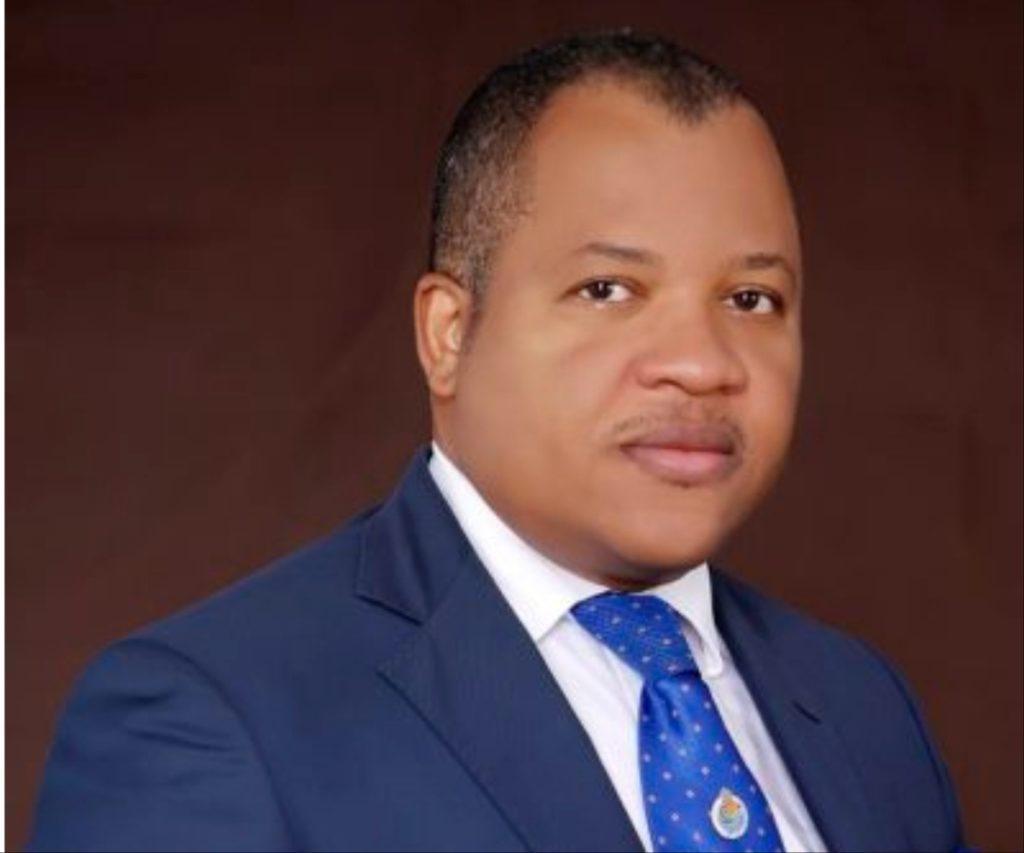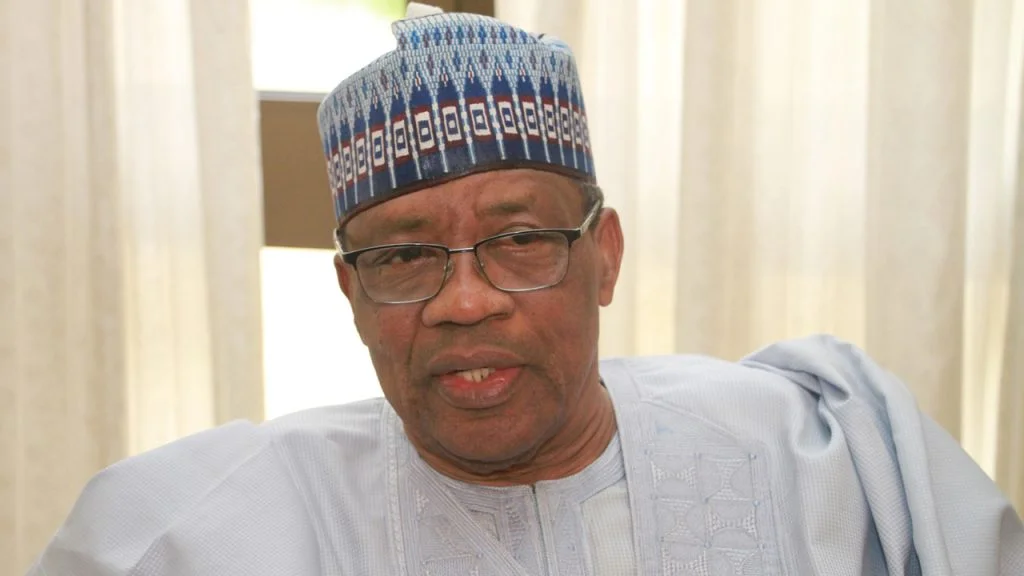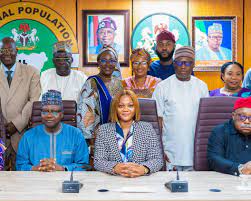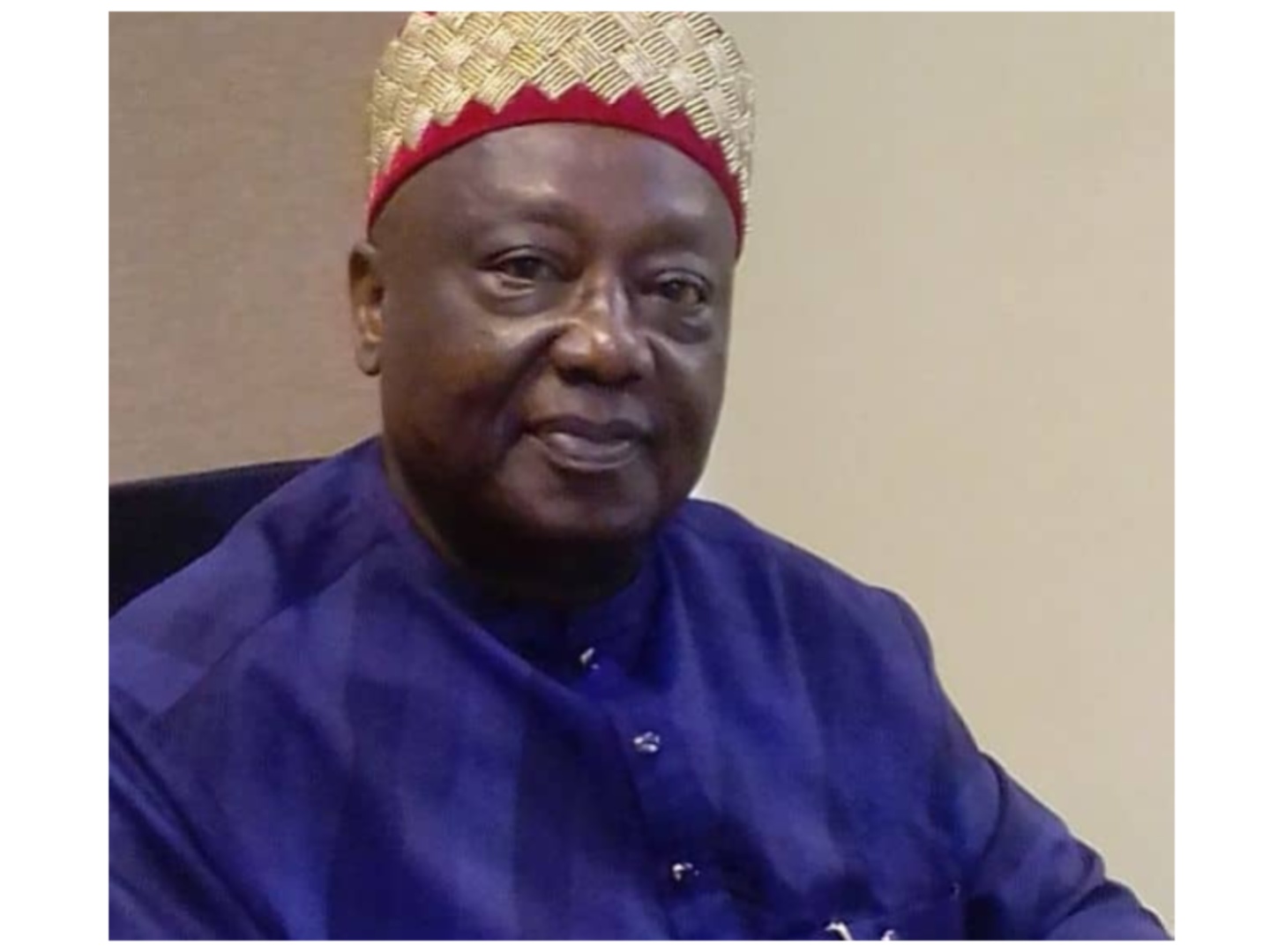Opinion
INTERVIEW: Why foreign countries see Nigeria as a breeding ground – UUTH CMD, Bassey

In this interview, Professor Ememabasi Bassey, a former Commissioner for Health in Akwa Ibom State and Chief Medical Director of the University of Uyo Teaching Hospital, discusses the causes and effects of brain drain, among other issues. Below are some excerpts:
The recent federal government initiative to recruit medical practitioners – will it effectively address the challenges of brain drain?
I express gratitude to the federal government for initiating recruitment into hospitals. However, recruitment alone is insufficient because, while we are bringing in new professionals, the problem lies in retention. Numerous health professionals, including resident doctors and consultants, are leaving the country regularly. The economic factor plays a significant role. The highest-earning medical doctor in Nigeria’s public service makes around $1000, whereas a junior medical professional in the UK earns about $3000 before tax. This economic disparity makes Nigeria a target for other countries to poach our skilled healthcare professionals.
What are the reasons behind this brain drain phenomenon?
Economic factors are paramount, with the meager salaries in Nigeria being a significant deterrent. The highest-earning doctors in the country cannot match the earnings of their counterparts in the UK or the United States. Lack of job satisfaction, inadequate working environments, and insecurity in some regions further contribute to the exodus of healthcare professionals.
How does brain drain impact your hospital?
The brain drain has affected our hospital, albeit not as severely as some teaching hospitals. Many resident doctors, nurses, and consultants have left. The departure of experienced professionals creates challenges in maintaining the quality of healthcare services.
What challenges do you face as the Chief Medical Director of UUTH?
Our challenges include power supply issues, inadequate infrastructure, financial constraints, and the attitude of staff towards patients. Power supply has been a persistent issue, and though we’ve made efforts to address it, challenges persist. Improving infrastructure has been a success, with the completion of abandoned projects and initiation of new ones. However, financial constraints persist, affecting our ability to procure essential supplies and equipment. Staff attitude towards patients is another challenge, and efforts are underway to improve organizational culture through regular training sessions.
How can the government address these issues, especially brain drain?
Addressing brain drain requires comprehensive policies and a conducive working environment. It involves improving pay structures for healthcare professionals, creating opportunities for career development, and enhancing working conditions. Additionally, discussions at the highest levels should focus on reversing brain drain and encouraging skilled professionals to return to Nigeria.
What are your thoughts on the proposed bill compelling medical professionals to serve for an extended period before leaving the country?
While acknowledging both positive and negative aspects, the bill may infringe on fundamental human rights. However, it could be applicable to individuals on scholarships or student loans. Subsidized medical education in government universities should foster patriotism, discouraging professionals from leaving hastily.
What inspired you to become a medical doctor?
Growing up with a mother who was a nurse and having family friends who were medical doctors, the path to becoming a medical doctor seemed inevitable. Despite excelling in arts, the passion for medicine prevailed, and it became the only career choice.
On the issue of health professionals engaging in private practice at the expense of government facilities:
Engaging in private practice at the expense of government facilities goes against ethical standards. While recognizing the financial challenges faced by civil servants, especially in the health sector, prioritizing private practice over public service is discouraged.
Concerning the frequent strikes by resident doctors:
Strikes, not exclusive to medical doctors, have become a pervasive issue in the Nigerian labor sector. Strikes should be a last resort, but unfortunately, they have become a common first-line action, posing challenges to effective healthcare delivery.
Interview
INTERVIEW: Fighting against my friends during civil war a sad experience – Babangida

His Excellency, General Ibrahim Badamasi Babangida (rtd), a former military head of state, spoke in an interview with Search FM, a Campus Radio, covering various aspects of his life, military service, and the civil war. The interview was monitored by Priscilla Dennis, a correspondent from DAILY POST.
Reflecting on his upbringing in Niger State (formerly the Niger province), General Babangida noted that he was born in Minna in 1941 and completed his primary and secondary education in Minna and Bida, respectively. He then pursued military training at the Nigerian Military Training College in Kaduna, Military Academy in India, and other military institutions.
When asked about his decision to enlist in the military, General Babangida explained that a deliberate government policy aimed to increase Northern representation in the military, leading to invitations extended to the younger generation from secondary schools.
Recalling his experience during the Nigerian civil war, General Babangida expressed the discomfort of facing friends and schoolmates on opposing sides. He emphasized the purpose of the war was to unite the country, not to divide it.
If not for his military career, General Babangida disclosed that he aspired to be a civil engineer. Regarding his leadership style, he emphasized the importance of studying and understanding human behavior, combining compassion with sometimes necessary ruthlessness to achieve goals.
In retirement, General Babangida mentioned his enjoyment of watching children grow. Reflecting on his achievements, he prioritized serving the country to the best of his ability, fostering good relations with the people, and gaining extensive knowledge of the country through travel.
Addressing young people, he advised them to understand that they are future leaders and encouraged them to study and know the country. In a lighthearted moment, he commented on a biopic about his life, acknowledging its attempt to provide food for thought but noting areas that could be improved for accuracy.
Featured
Coker – Odusote:100 Days at the Helm of NIMC

By Walter Duru, Ph.D
It was Albert Einstein that once said that “setting an example is not the main means of influencing another, it is the only means.” That sentiment expressed by Einstein is the primary essence behind the theory of transformational leadership, which requires passion, charisma, and the ability to motivate others. Transformational leaders are usually very authentic, emotionally intelligent, great listeners, results-focused, visionary, and self-aware.
In just 100 days at the helm of the National Identity Management Commission (NIMC), Engr. Abisoye Coker-Odusote has ushered in a new era of transformational leadership, leaving an indelible mark on the organization. Her eventual confirmation as substantive Director General/Chief Executive Officer of the Commission did not come to many as a surprise.
She did not waste time to hit the ground running and showed commitment to advancing the NIMC’s mission and mandate.
Coker-Odusote has taken steps to streamline National Identity Number (NIN) registration processes, while addressing the long-standing challenges associated with identity registration in Nigeria. This, she is handling through strategic restructuring and the integration of advanced technologies with a view to significantly reduce waiting time and enhance the overall efficiency of the system.
Today, date of birth and other kinds of modifications at NIMC happen within 48 hours. The several years backlog of date of birth modifications she inherited are almost cleared, as she had given a one-month deadline for the same to relevant staff of the Commission.
Again, responses to issues and complaints, such as those whose National Identity Numbers did not hit the NIN Verification Portal are now resolved within 24 hours.
Recognizing the paramount importance of data security in the digital age, the NIMC CEO has taken steps to enhance data security by introducing robust measures to fortify the protection of citizens’ sensitive information. This includes, but not limited to the adoption of cutting-edge encryption technologies and the establishment of a dedicated cybersecurity team.
Her interest in improving service delivery at NIMC cannot be overemphasized. She has concluded plans to ensure regular training and retraining for staff of the Commission, emphasizing customer-centric approaches, to ensure a more positive experience for citizens seeking identity services.
On partnerships, Coker-Odusote, leveraging her extensive network and expertise, has forged strategic partnerships with governmental agencies, private organizations, and international bodies. These collaborations aim to enhance the NIMC’s capacity, foster innovation, and promote information sharing for the betterment of identity management.
Understanding the pivotal role of technology in modernizing identity management, Engr. Coker-Odusote has spearheaded the integration of biometric advancements and artificial intelligence into the registration and verification processes.
This not only improves accuracy, user experience and ease of enrolment, but also positions NIMC at the forefront of technological innovation in identity management. A typical example is the NIMC Contactless Biometric Solution, which delivers a best-in-class fingerprint and facial capture image output quality, powered by Artificial Intelligence. The new solution was unveiled by the commission at the 2023 Identity Day, held in Abuja on September 16, 2023.
In addition, Engr. Coker-Odusote tackled the existing backlog of unprocessed identity requests head-on. Through a combination of strategic staff deployment and redeployment, process optimization, and digitization initiatives, she has made significant strides in clearing the backlog, demonstrating her commitment to prompt and efficient service delivery.
Recognizing the crucial role played by the NIMC staff in achieving organizational goals, the CEO has developed for implementation, a robust welfare programme aimed at boosting morale and fostering a positive work environment. This includes, but not limited to training opportunities, health benefits, and performance recognition initiatives.
Furthermore, in consultation with in-house experts, elaborate public awareness campaigns are being planned, to ensure that citizens are well-informed about the importance and benefits of identity registration. These campaigns are expected to not only educate the public, but also serve to demystify the registration process, encouraging greater participation.
The NIMC DG has concluded plans to take the ecosystem enrolment forward by taking steps to deepen collaboration with ecosystem implementing partners, supporting to ensure the success and optimal performance of the Nigeria Digital Identification for Development (ID4D) Project, a Nigerian Project jointly funded by The World Bank, The European Investment Bank, and the French Development Agency.
Engr. Coker-Odusote’s strategic vision, commitment to efficiency, and emphasis on technological innovation positions NIMC for a future where identity management is not only secure but also seamlessly integrated into the daily lives of citizens.
On anti-corruption, the NIMC DG has left no one in doubt on her determination to sanitize the system, entrench a culture of transparency and zero tolerance for corruption. Apart from putting systems and structures in place to discourage graft, she is directly involved in ensuring that the cankerworm has no place in the commission.
Just recently, in what one may describe as a sting operation, she paid an unscheduled visit to the Federal Capital Territory office of the commission, where she is reported to have arrested some staff for allegedly extorting money from Nigerians, even as she has maintained that enrolment was free.
Her devotion to supporting the policy direction of the present administration by strengthening the issuance of the NIN for access to service is not in doubt.
Speaking on Coker-Odusote’s first 100 days in office as NIMC CEO, Project Coordinator, Nigeria Digital ID4D Project, Musa Odole Solomon described her as a vibrant, results-focused leader, determined to make a difference in the Commission.
“She has taken steps to build bridges of collaboration between NIMC and partners within the country’s identity ecosystem. These collaborations aim to enhance the NIMC’s capacity, foster innovation, and promote information sharing for the betterment of identity management in Nigeria.”
“The collaboration is also focused on enhancing handshake with institutions involved in the country’s identity ecosystem, with a view to deepening integration with the country’s Identity Management System.”
“In 100 days, she has taken the lead in working with the Nigeria Digital ID4D Project to speed up project implementation process, especially, processes geared towards the extension of NIN enrolment to hard-to-reach areas, women, persons with disabilities, and marginalized groups, thereby fostering inclusion and access to social services.”
“She has introduced some innovations that I consider very progressive, and things are moving very well. The Nigeria Digital ID4D Project is happy to work with her, as she has shown that she has all it takes to assist us succeed.”
Responding to a question on his impression about the NIMC DG’s leadership style and the future of the relationship between NIMC and his organisation, Chairman, National Population Commission (NPC), Hon. Nasir Isa Kwarra stressed that the relationship between NIMC and NPC has become more robust under Coker-Odusote’s leadership as NIMC CEO.
“I want to say that the National Population Commission has a long and robust collaborative partnership with the National Identity Management Commission (NIMC) in our efforts to harmonize and integrate biometric databases for planning and development of our country.”
“However, this partnership has become more dynamic and robust with the assumption into office of Engr. Abisoye Coker-Odusote as the Director General of NIMC. She has shown an unparalleled commitment and passion in working with the Commission, not only in registration of births and deaths, but also the upcoming population census. She comes across as a thoroughbred professional and innovator who will give Africa’s greatest nation a deserved identity profile for national unity, security, and development. I am more confident in the future of the Identity Management Commission under her.”
Responding to a question on the new grounds covered at the NIMC ICT, Director, IT/Identity Database of the Commission, Chuks Onyepunuka has this to say:
“Our DG is pragmatic, proactive, result-oriented and visionist. Her achievements in ICT in NIMC in the last 100 days include, but not limited to: “launching of self-modification and enrolments services to ease and simplify the processes for enrolment services; driving the clearing of about 3 million backlog of enrolment records awaiting manual adjudication within 3 weeks; decentralization of operations with objectives of ensuring that we are closer to the enrolees and adequate coverage in the nooks and crannies of the country.”
“Others are improvement in the process of engaging and revalidating our Frontend Enrolment Partners (FEPs); improvement in our ICT policies, processes and procedures; resolution of 95% challenges/issues affecting our window enrolment software (Res-Web) and commenced the integration and harmonization with National Population Commission, Nigeria Immigration Service and Federal Inland Revenue Service (FIRS).”
Adding her voice, NIMC’s Director, Business Development and Commercial Services, Mrs. Carolyn Folami described the DG as a thoroughbred professional, committed to resetting the Commission for the good of the nation.
“It has been only 100 days, but it seems she has been here far longer, as within this period, we have achieved a couple of goals towards resetting the NIMC agenda and resettling the NIMC staff for productivity.”
“Starting with the planning and commencement of training of all staff, to the commitment to all Front-End Partners (FEP) to revalidate the business model for fair play and payment. She is very keen on stakeholder engagement and has secured the buy- in of our harmonisation partners for effectiveness. She is professional, thorough, dedicated, and above all, kind to all.
Adding his voice, Monitoring and Evaluation Specialist, Project Implementation Unit, Nigeria Digital ID4D Project, Dr. Emmanuel Akogun argued that Coker-Odusote’s first 100 days in office were characterised by “dynamic, focused and results – oriented leadership,” adding that there is steady progress in NIN enrolment, with “103,500,000 Nigerians and other legal residents captured in the NIMC Database.”
There is therefore no gainsaying the fact that Engr. Abisoye Coker-Odusote’s first 100 days as CEO of the NIMC have been marked by a series of commendable achievements.
At this point, one can confidently say that with Engr. Bisoye Coker-Odusote as Chief Executive Officer, NIMC is in safe hands.
Her recent confirmation as substantive Director General/CEO of the Commission is clearly an act of patriotism by the Nigerian President, Bola Ahmed Tinubu.
However, as she commences a full tenure of office, following her recent confirmation, one expects that the standard is not lowered.
As she marks 100 days in office this week, the most challenging part of Abisoye Coker-Odusote’s journey as Chief Executive Officer of the NIMC is the need to sustain the successes recorded, remain focused, deepen stakeholder engagement and public enlightenment, check corruption, strengthen systems and structures, be fair to all, while supporting the policy direction of the present administration.
Deliberate steps must be taken to ensure the sustenance of the war against extortion at NIMC.
Again, a deliberate plan should be in place to ensure a more robust stakeholder collaboration, particularly with those involved in the country’s identity ecosystem.
Elaborate, sustained communication and public enlightenment activities are required, taking advantage of the conventional and unconventional channels of communication to inform, educate and mobilize the citizens on the need for all to register for the NIN. This requires a deliberate strategy and strategic implementation.
Finally, a deliberate inclusion strategy must be in place and vigorously implemented to ensure that no one is left behind.
As the DG continues to lead with passion and purpose, NIMC is poised for even greater accomplishments under her guidance.
Indeed, NIMC is in safe hands!
Dr. Walter Duru (Assistant Professor of Communication and Multimedia Design) is a Communication/Public Relations Strategist, Researcher and Consultant. He could be reached on walterchike@gmail.com
Interview
INTERVIEW: Nigerians were fooled with Electoral Act amendment – APGA Chair, Obi-Okoye

Chief Ifeatu Obi-Okoye, a seasoned politician with many years of experience, currently serves as the Chairman of the All Progressives Grand Alliance (APGA) in Anambra State. In an interview with DAILY POST’s David Eleke, Chief Obi-Okoye expresses dissatisfaction with the 2022 amended Electoral Act, asserting that it failed to address the public’s expectations. He criticizes the conduct of recent off-season elections in Imo, Kogi, and Bayelsa, suggesting a regression to old practices. The chairman also provides insights into the upcoming 2025 gubernatorial election in Anambra State and addresses challenges faced by APGA in recent elections.
Regarding the electoral process, Chief Obi-Okoye emphasizes the need for substantial reforms to ensure free and fair elections. He criticizes the 2022 electoral act, highlighting its failure to guarantee transparent accreditation of voters. The chairman expresses disappointment in the lack of effective reforms and points to the recent election results in Imo and Kogi as evidence of a return to past irregularities. He urges the National Assembly to address these issues through specific legislations.
Chief Obi-Okoye reflects on APGA’s performance in the last election, acknowledging a decrease in the number of seats in the House of Assembly. He attributes this decline to internal issues, including poorly conducted primaries and intra-party grievances. However, he expresses confidence in the party’s ability to perform better in the next election, citing ongoing efforts to rebuild and address internal challenges.
Addressing criticisms from former governorship candidates Obiora Okonkwo and Ifeanyi Ubah, Chief Obi-Okoye dismisses their opinions, particularly questioning Okonkwo’s political standing based on past electoral outcomes. He defends Governor Soludo’s performance, emphasizing achievements such as road construction, teacher employment, and youth empowerment.
As the Chairman of APGA in Anambra State for six months, Chief Obi-Okoye discusses the challenges faced and the strategies employed to revitalize the party. He mentions rebuilding trust, addressing intra-party grievances, and implementing discipline as key priorities. He also highlights efforts to involve grassroots supporters and support groups in party activities, emphasizing the party’s supremacy.
Looking ahead to the 2025 gubernatorial election, Chief Obi-Okoye downplays concerns about potential challengers to Governor Soludo, asserting that the governor’s focus should remain on good governance. He believes that the governor’s achievements, including infrastructure development, will resonate with voters during the campaign period.
In summary, Chief Ifeatu Obi-Okoye’s interview covers his perspectives on electoral reforms, APGA’s performance, internal challenges, and the party’s strategies for the future, including the upcoming gubernatorial election in Anambra State.
-

 World News7 months ago
World News7 months agoWhat we know about Israel’s war with Hamas
-

 Sports7 months ago
Sports7 months agoLaLiga: Everyone want to play with him – Vinicius on player Real Madrid should sign
-

 World News7 months ago
World News7 months agoIran calls on Islamic, Arab countries to confront Israel
-

 Tech7 months ago
Tech7 months agoTop 10 AI Skills to Learn in 2023
-

 Entertainment7 months ago
Entertainment7 months agoBET Hip-Hop Awards: Black Sherif wins big as Burna Boy loses seven nominations
-

 Entertainment7 months ago
Entertainment7 months ago‘Black Panther’ star Lupita Nyong’o breaks up with boyfriend, Selema Masekela
-

 ICT8 months ago
ICT8 months agoApple Bows To EU, Unveils iPhone With USB-C Charger
-

 World News7 months ago
World News7 months agoZelensky seeks defences for winter on visit to NATO


